Since the launch of Facebook in 2004, social media has reshaped political communication and electoral politics. It has become an indispensable tool for governments and non-governmental actors across the globe to promote their narratives, causes, and propaganda. With varying degrees of transparency, these entities are using platforms like Facebook and TikTok to bypass traditional media, directly engaging with citizens and influencing public opinion.
The social media presence of the organisation “Young Turkish Cypriots” (Y.T.C.) provides a clear example of this new digital reality. The organisation has its own website and maintains profiles on TikTok, Facebook, X and Instagram, where it is followed by thousands of accounts and posts political multimedia content at least once every day, curated for each platform.
An analysis indicates that it is marked by an inauthentic audience and a consistent promotion of the two-state solution for Cyprus, aligning with the political narrative of the current Turkish Cypriot administration.
A social media audit of the group’s profile showed a health score of just 14 out of 100, which is categorised as “low.” The report revealed that a significant majority of the account’s followers, 90.7%, are not authentic. The majority of these were classified as “suspicious accounts” (57.7%) or “mass followers” (33.0%), with only a small minority, 5.8%, identified as genuine users.
The audit also noted that while the account had a high level of likes and comments, the authenticity of this engagement was deemed to be low, consistent with the large number of inauthentic followers.
Propaganda and political alignment
The Y.T.C. has a track record of using propaganda tactics to advance its political agenda, particularly through its messaging on social media. The organisation consistently uses the existence and rhetoric of the far-right Greek Cypriot nationalist party ELAM as evidence that a federal solution for Cyprus is unworkable. They frame the two-state solution as the only viable path to ensure the safety and security of Turkish Cypriots, a tactic that aims to create a sense of fear and distrust by associating all Greek Cypriots with the extreme views of a minority political group.
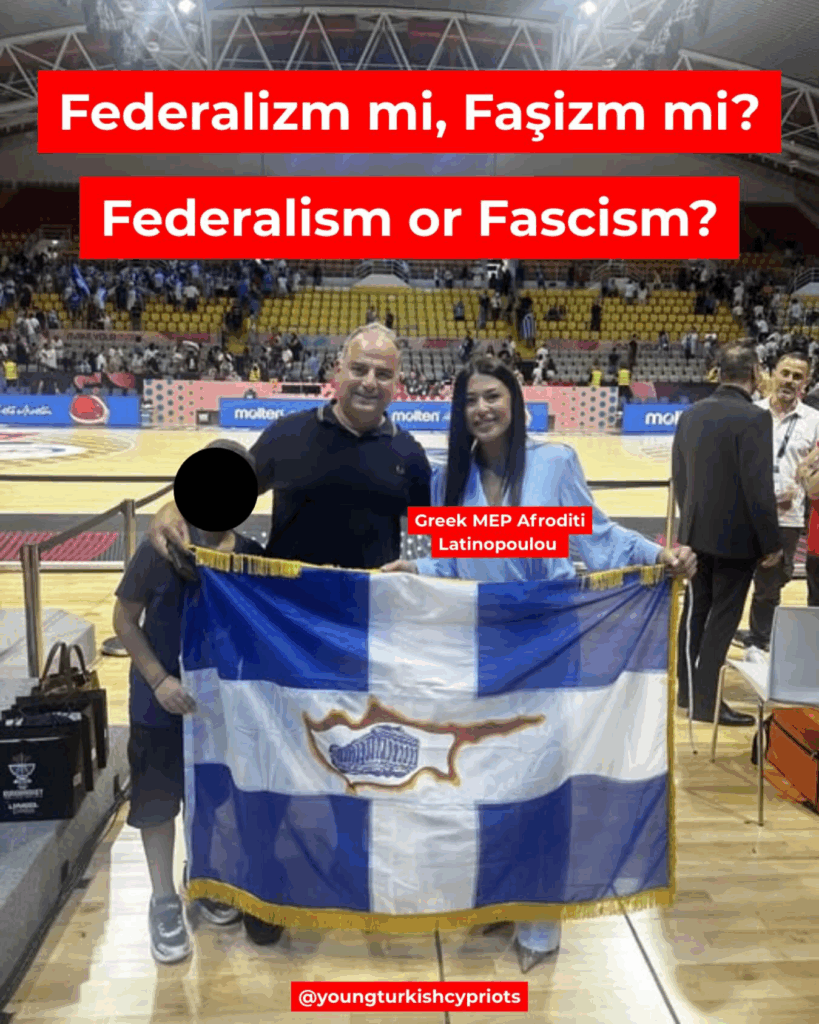
The Y.T.C. also uses real historical events and grievances to reinforce its narrative of Greek Cypriot aggression.
- The 1974 “Peace Operation”: The Y.T.C. rejects the term “invasion,” referring to the events of 1974 as a “peace operation.” This narrative holds that Turkey, acting as a guarantor power, intervened to protect Turkish Cypriots from the coup d’état staged by the Greek military junta and EOKA B, which was aimed at achieving Enosis, or the union of Cyprus with Greece. They consistently claim this action prevented the annihilation of the Turkish Cypriot people.
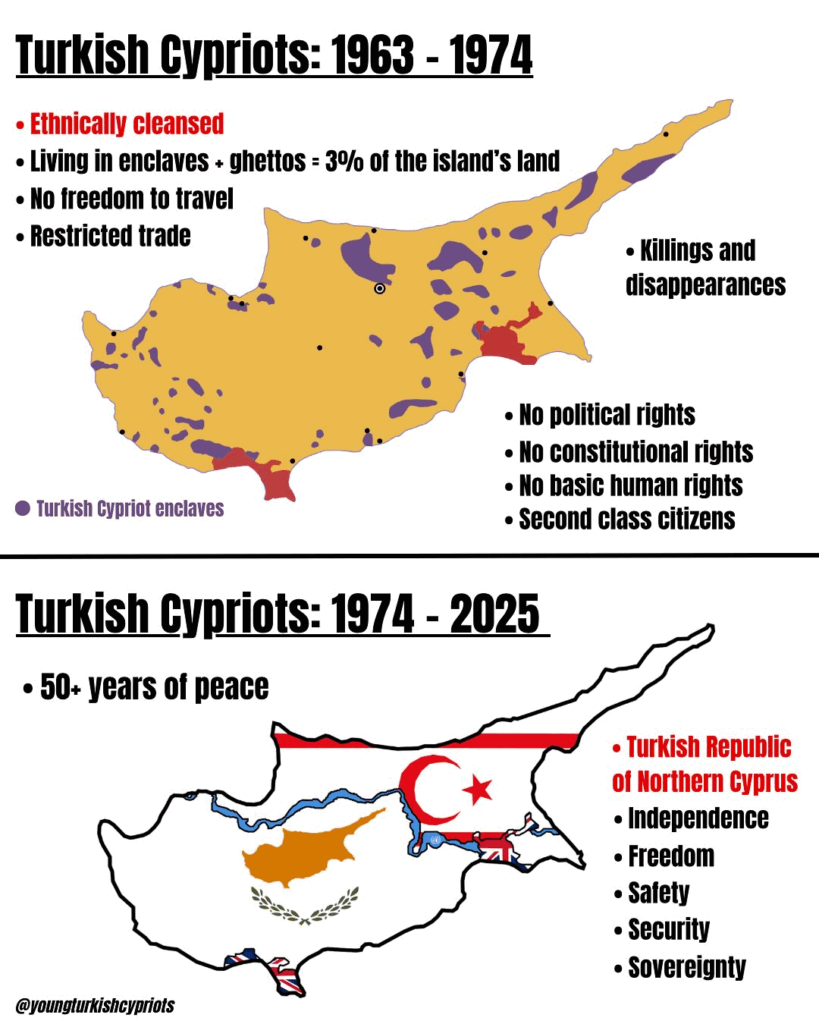
- The 1996 murder of Turkish soldier Allahverdi Kılıç: The Y.T.C. uses specific historical events to reinforce its narrative of Greek Cypriot aggression. An example is a recent post commemorating the death of Turkish soldier Allahverdi Kılıç on 8 September 1996. The post explicitly refers to his death as a “revenge killing” for the deaths of Tassos Isaac and Solomos Solomou, two Greek Cypriots who had been killed weeks earlier. This framing of events is used to keep historical grievances at the forefront and to strengthen the group’s argument that the two communities cannot coexist peacefully in a unified state.
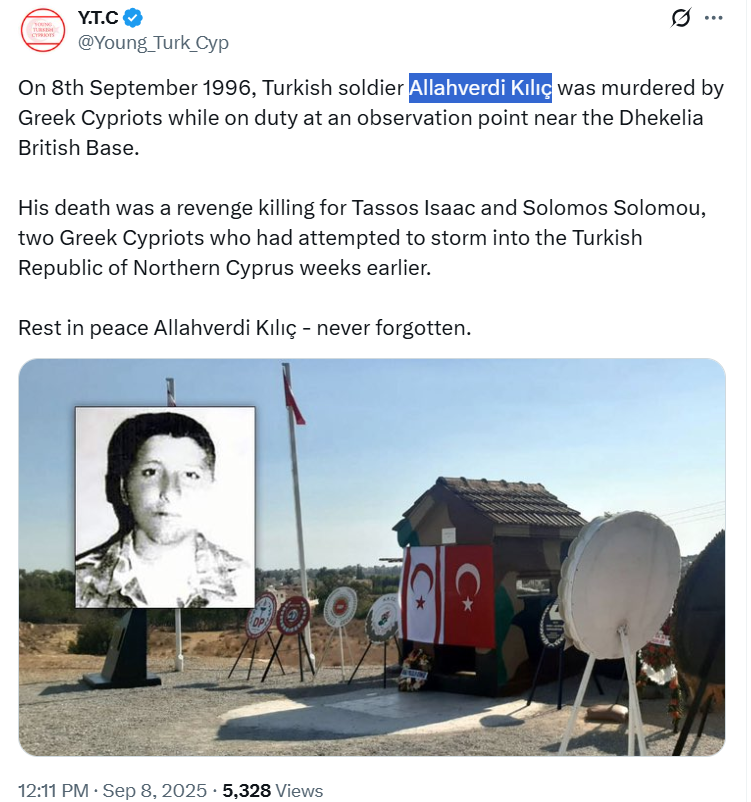
Y.T.C.’s messaging seems to be aligned with the political vision of the Turkish Cypriot President, Ersin Tatar. It consistently promotes the two-state solution as the only viable path forward for Cyprus, a policy that is a cornerstone of the current Turkish Cypriot administration’s platform. This messaging implicitly and explicitly opposes politicians like Tufan Erhürman, who advocate for a federal solution.
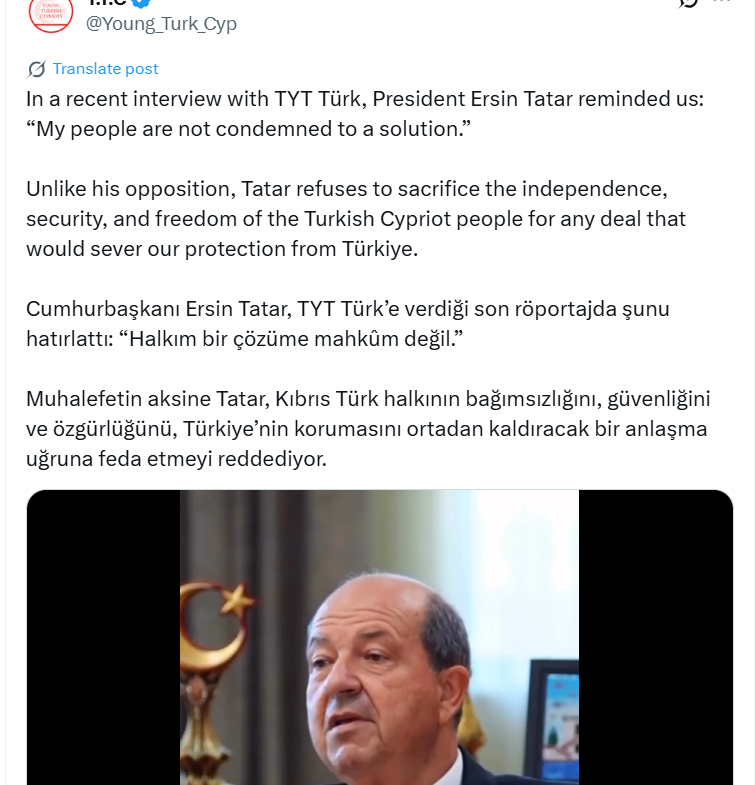
An example is an online poll conducted by the organisation for the upcoming October “presidential election” in the occupied north.
Posted on September 4, the poll claimed to have received over 20,500 votes, with results showing overwhelming support for the incumbent, Ersin Tatar, at 82%, while the main opposition candidate, Tufan Erhürman, received only 5%. This online poll is not a scientifically valid public opinion survey but a tactic used to create a narrative of popular support for Tatar’s re-election campaign and to marginalise his opponent.
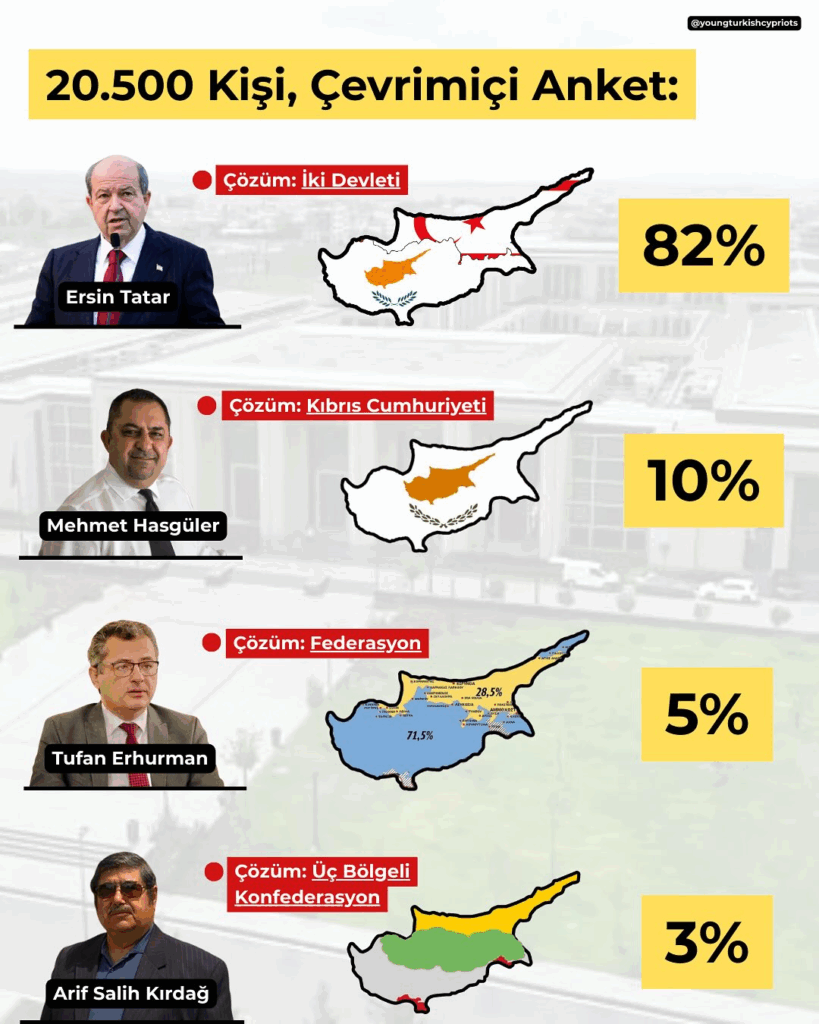
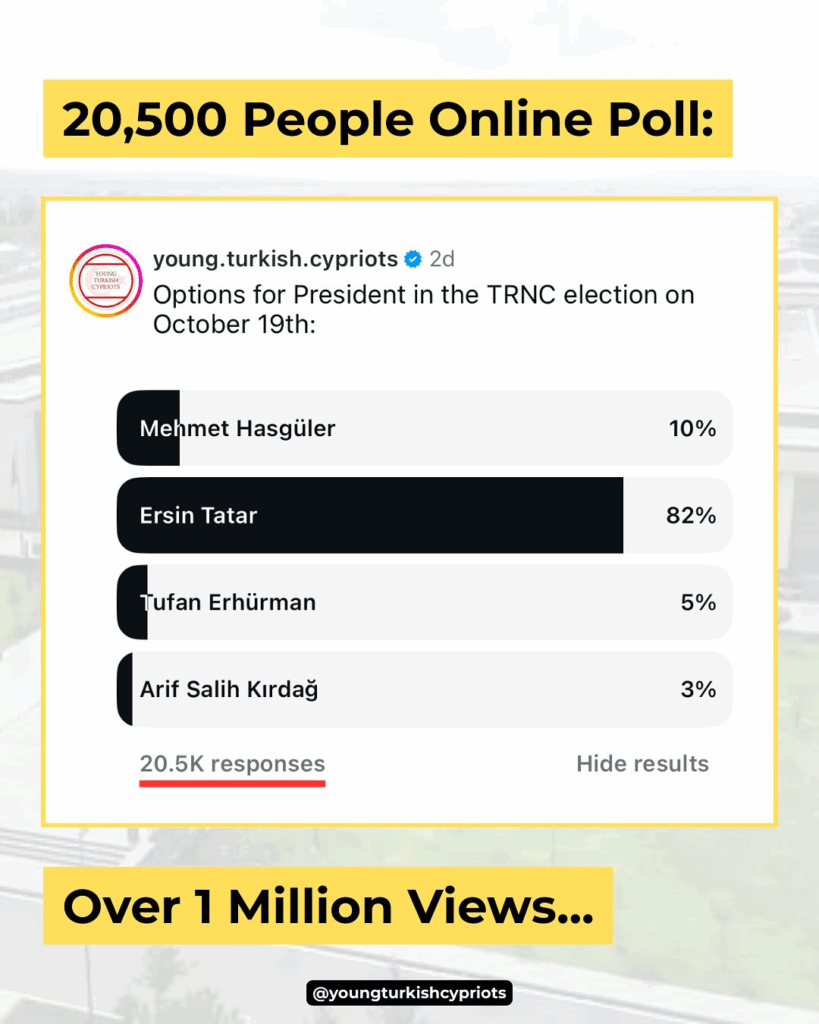
Transparency and funding
The Y.T.C. operates with a lack of transparency regarding its funding and management. The organisation does not publicly disclose how it is funded or the specific individuals who manage its social media pages.
According to the Facebook “Page transparency” section, the page was created on January 2, 2021, and the primary location for its managers is the United Kingdom. The page has also run advertisements in the past on “social issues, elections, or politics,” indicating that it has financial resources to amplify its message.
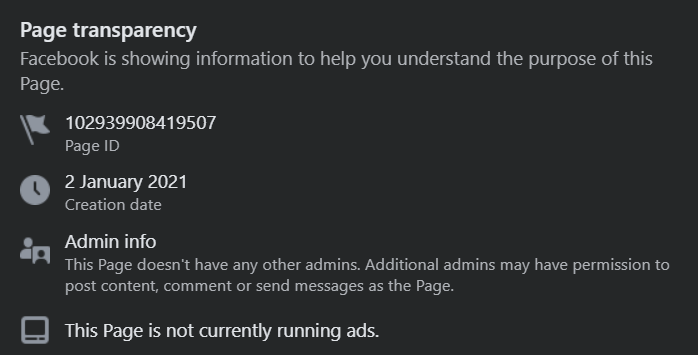
Webinar speakers
The participants in webinars the Y.T.C.’s promoted on its website are individuals with a clear history of advocating for the two-state solution. They include:
- Professor Hüseyin Işıksal: A key member of the TRNC’s negotiating team and the “Special Advisor to the TRNC President on International Relations and Diplomacy”. He argues that “Turkish Cypriot people possess all of the attributes of statehood and are entitled to the same rights and status as the Greek Cypriot side currently exercises.” He has stated that a “just and sustainable settlement” requires “reinstating Turkish Cypriot people’s rights by reaffirming their sovereign equality and equal international status.”
- Ergün Olgun: The “Special Representative of the TRNC President”, who has a long history in Cyprus negotiations. He has stated that the “fundamental necessity for justice and fairness is for the Turkish Cypriot side to have an equal say and to be given opportunity.” He has also accused the Greek Cypriot leadership of conducting “intense propaganda campaigns” and has said that the President Christodoulides still views Turkish Cypriots as a “minority.”
- Dr. Christian Heinze: A German lawyer who served on the Supreme Constitutional Court of the Republic of Cyprus in the early 1960s. He resigned in 1963 in protest of then-President Makarios’s attempts to amend the constitution. He has argued that a “legitimate or legal Republic of Cyprus never came into existence at all” because the Greek side rejected the constitution and that “recognition of two… states enjoying equal rights in the island” must come first for any effective negotiation to begin.
- Jack Straw: The former UK Foreign Secretary and a vocal proponent of a two-state solution. He has been quoted stating that “The only realistic way forward for Cyprus is a two-state solution” and has called for “fresh thinking” to “excise this tumour from Europe.”
- Lord Northbrook: A co-chair of the All-Party Parliamentary Group for the TRNC. He has spoken in the UK Parliament about the Cyprus issue, expressing his pessimism about a settlement due to what he perceives as a lack of progress from the Greek Cypriot side.
- Oğuzhan Hasipoğlu: A legal counsel to the negotiating team of the administration in the occupied north, he has stated that “guarantorship is our red line” and that the Turkish Cypriot side’s struggle will continue with Turkey.
- Andrew Rosindell MP and Sir Iain Duncan Smith MP: Both are UK politicians who have shown sympathy with the Turkish Cypriot position. Sir Iain Duncan Smith has publicly supported a petition for direct flights to the north of Cyprus, stating that he will “continue to engage with the government to see whether we can solve this very straightforward matter.”
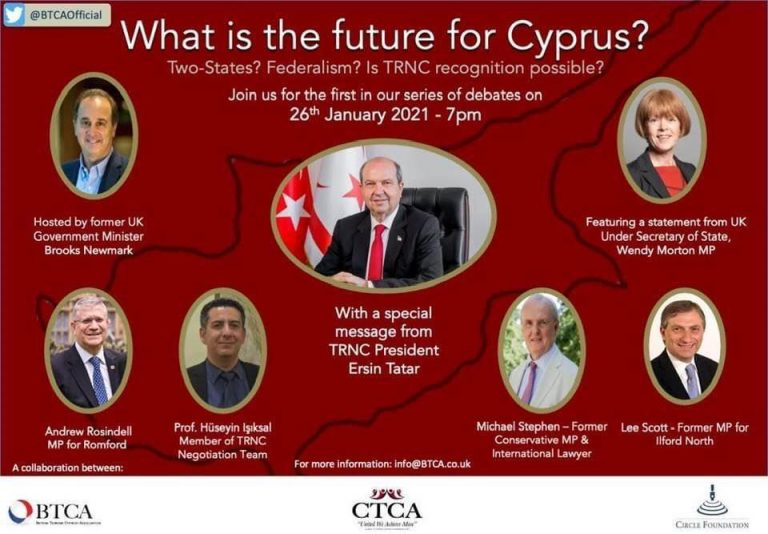

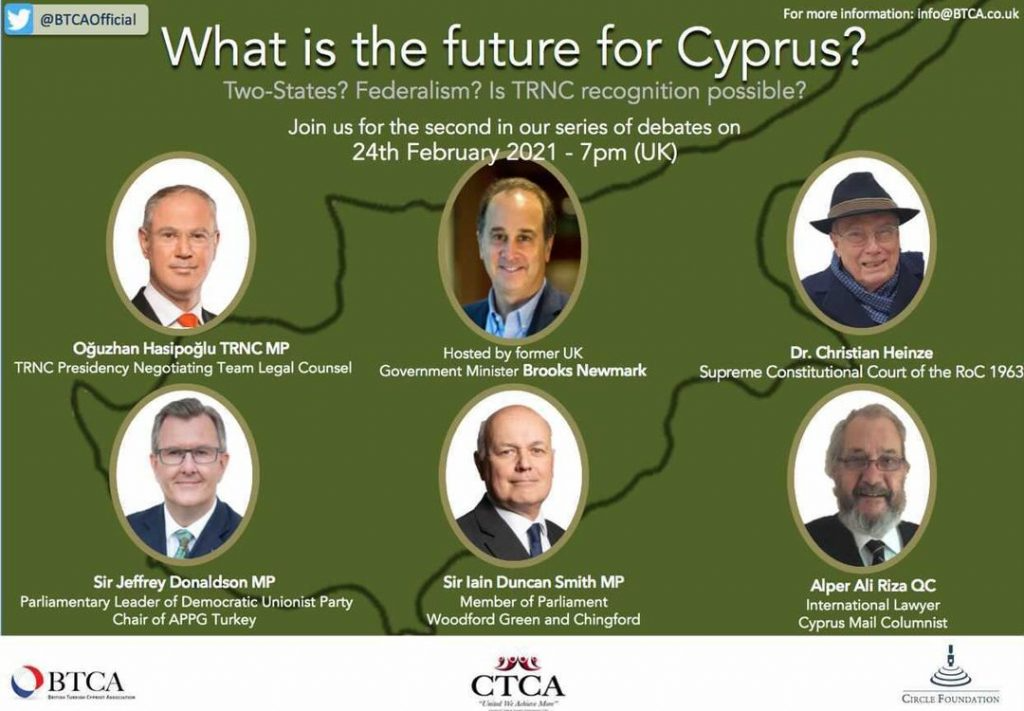
How to spot suspicious social media profiles?
1. Scrutinise the profile Take a moment to look at the account’s profile. Does it seem authentic? Be wary of accounts with:
- An AI-generated or stock photo as a profile picture, or a photo that can be found elsewhere on the internet via a reverse image search.
- A generic or nonsensical username (e.g., user123456, JaneDoe87_).
- An incomplete, vague, or overly dramatic biography.
- A new account creation date with a lot of recent activity.
2. Evaluate the follower and following ratio A suspicious ratio can be a major red flag. If an account has a large number of followers but only follows a handful of other accounts, or vice-versa, it could be a sign of inauthentic behaviour. Many propaganda accounts use bots to artificially inflate their follower count or follow a vast number of accounts to get noticed.
3. Analyse the content and posting behaviour The nature of the content an account posts can tell you a lot about its purpose. Look for these signs:
- Repetitive or recycled content: Does the account primarily post or share the same content over and over again? Many propaganda accounts exist simply to amplify a specific message, often using identical language and hashtags.
- Lack of originality: Be cautious of accounts that rarely post original content and instead just retweet, share, or repost from a small number of other accounts. This behaviour is typical of bot networks designed to create the illusion of widespread support.
- Emotional or inflammatory language: Propaganda often relies on emotionally charged language to bypass critical thinking. If the account’s posts are consistently angry, fearful, or highly biased, they may be trying to provoke an emotional reaction rather than provide factual information.
4. Check for external verification While not all legitimate accounts have a verification badge, is an indicator for high-profile individuals, organisations, and journalists. If an account is impersonating a well-known person or entity but lacks a verification badge, it’s almost certainly fake. Even if it has a badge, check the account’s history and activity, as some accounts can be compromised and used to spread propaganda.

